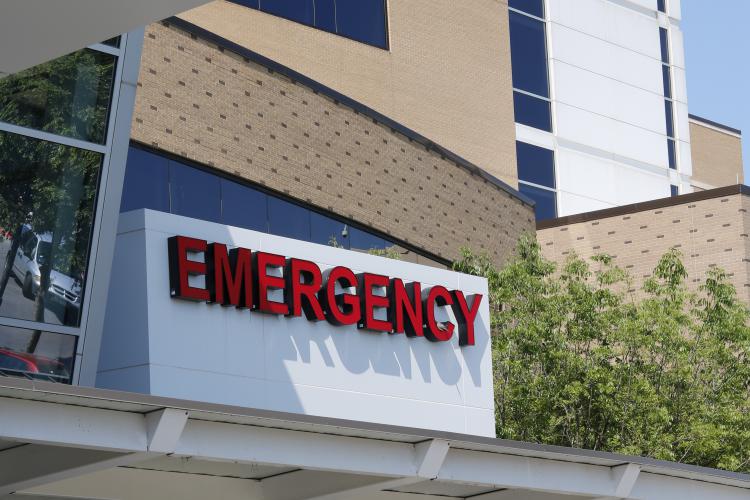
A pilot program at JPS to identify victims of domestic abuse and human trafficking and lead them to help has produced such encouraging results, it’s already been expanded.
“It’s an evidence-based screening process that gives more certainty about detecting abuse and how to proceed in situations when abuse is detected,” explained JPS Violence and Injury Prevention Manager Mary Ann Contreras, RN.
The pilot program was started with a grant from the City of Fort Worth.
Departments in the original pilot included Emergency, the Polytechnic Health Center and the P-5 Surgical-Trauma Progressive Care Unit. The hope is that the program will eventually be expanded throughout the JPS Health Network.
Dr. James D’Etienne, MD, said domestic violence and human trafficking are problems across the country. Putting a screening process in place is the health network doing its share to help build a nationwide safety net that keeps victims from going unnoticed.
“This isn’t something that only JPS is doing,” D’Etienne said. “This is something that is going on across the state and across the country with the goal being that anywhere a victim goes for medical care, they’ll have an opportunity to find help.”
Ultimately, D’Etienne said, abusers would have no place to hide.
How does it work?
Upon arrival, patients who may be the victim of domestic violence are taken into a room -- alone – where they are asked if they have been struck, assaulted, threatened or shouted at by their partner. Each of the four questions is answered on a scale of 1 to 5 … the higher the number, the more frequent, violent or serious the issue. A total score of 10 or more indicates to healthcare workers that the patient is likely the victim of abuse and cues the nurse to offer the patient information about how to get help.
While Fort Worth is just a piece of the national puzzle, it’s a large piece.
In Texas, Tarrant County comes in second -- trailing only the Houston area -- in the number of human trafficking victims. In some cases, people with no resources and no way to escape are kept as indentured servants of their captors, forced to do labor for little or no money. In others, victims are forced into a life of prostitution. Often, trafficking victims are illegal immigrants and their captors threaten to turn them in to authorities if they don’t follow orders or if they try to escape.
“It’s heartbreaking,” D’Etienne said. “But, somehow, it’s still able to go on underneath the radar.”
A different screening process is used to identify human trafficking victims than the one employed to detect domestic abuse victims. Signs often associated with people held against their will include depression, post-traumatic stress disorder, self-harming behavior, attachment disorder, hostility, lack of emotional responsiveness, sexually transmitted disease, blunt force trauma, broken bones and teeth, unexplained memory loss, malnutrition, genital trauma, substance abuse and symptoms associated with long-term exposure to agricultural chemicals. Also common is bonding with their captor, also known as “Stockholm Syndrome.”
Why screen at JPS?
It’s important to connect with violence victims when they seek healthcare to keep them from falling through the cracks and failing to get out of a potentially life-threatening situation before it is too late, Contreras said. According to studies, the average intimate violence victim seeks healthcare 17 times a year, so the emergency room, urgent care center and medical offices are a place to find them. One in three women will face abuse at some point in their life and one of seven men. About 350 people a day come through the 50-bed Emergency Department at JPS. Another 200 check in on an average day in the health network’s urgent care center. About 56 percent of the violent crimes that occur in Tarrant County involve family members.
What happens when victims of violence or trafficking are identified? They’re referred to services that can help victims break out of their seemingly hopeless situation. People who are affected by domestic violence are referred to One Safe Place and SafeHaven, Tarrant County-based organizations that offer support to people trying to establish themselves outside of an abusive relationship. To break the cycle of dependency and violence, those organizations go beyond assisting victims with emergency shelter.
“They offer things like access to lawyers, clothes, day care and job training so people can overcome the barriers that, in many cases, prevent them from escaping a bad situation,” Contreras said. “They also help abuse victims make a safety plan. Basically, it all adds up to giving a person an opportunity to invest in themselves.”
Trafficking victims are referred to the federal human trafficking hotline and other resources. Last year, 14,414 calls to the hotline originated in Texas. Often, the victims of sex trafficking are 17 years old or younger. If they’re under the age of consent and show signs of sexual activity, it is required that police be called.
Contreras said, while domestic violence and trafficking are difficult issues to talk about, JPS leaders are enthusiastic to partner with other organizations – local, state and federal or private – to reduce violence in any way possible.
